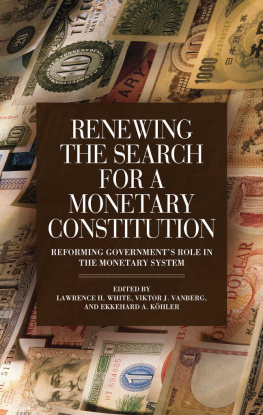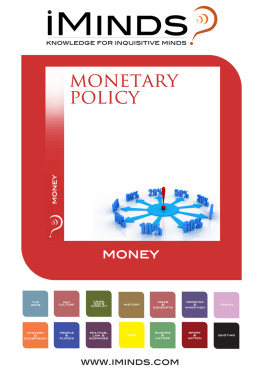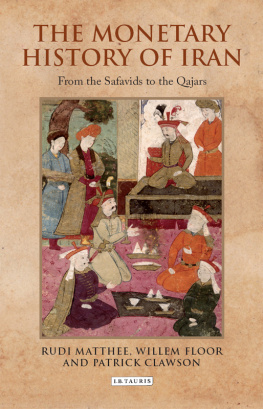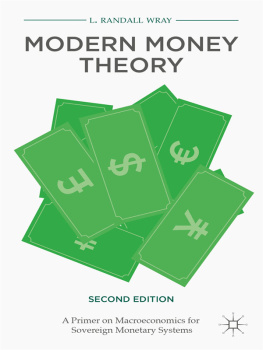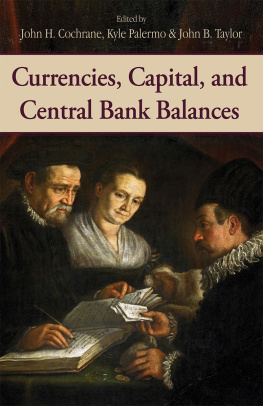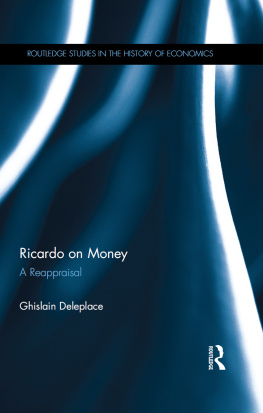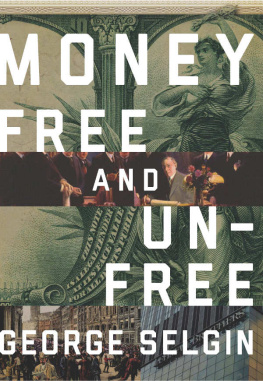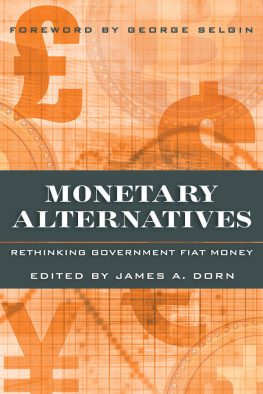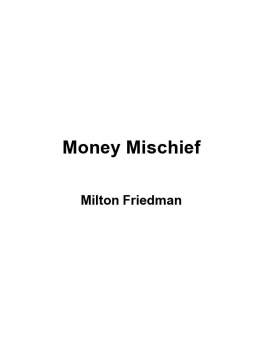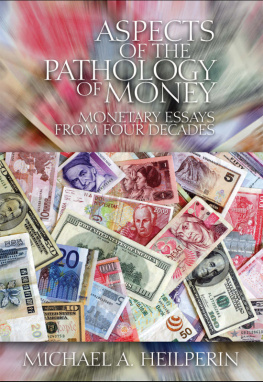RENEWING
THE SEARCH
FOR A
MONETARY
CONSTITUTION
REFORMING GOVERNMENTS ROLE IN
THE MONETARY SYSTEM
EDITED BY
LAWRENCE H. WHITE, VIKTOR J. VANBERG,
AND EKKEHARD A. KHLER

Contents
Lawrence H. White
Leland B. Yeager
Hugh Rockoff
James M. Buchanan
Ekkehard A. Khler and Viktor J. Vanberg
Peter Bernholz
W. William Woolsey
Bennett T. McCallum
Gunther Schnabl
Lawrence H. White
Kevin Dowd
Gerald P. ODriscoll, Jr.
Lawrence H. White
First drafts of the papers collected here were originally presented at an April 2012 symposium held in Freiburg-im-Breisgau, Germany, organized by the editors of this volume and conducted by the Liberty Fund, Inc. The symposium was timed to mark the 50th anniversary of the 1962 publication of the important volume In Search of aMonetary Constitution, edited by Leland Yeager. Professor Yeagers volume was based on a fall 1960 lecture series he had organized at the University of Virginia. Our authors had a similar mandate to the one Yeager described giving to his lecturers, namely that they were encouraged to take the broadest possible view, without worry about political practicality or about possible accusations of extremism, as if advising people engaged in shaping the basic character of a monetary system, in shaping a monetary constitution (Yeager 1962, 1). Here we offer revised versions of the symposium papers with the aim of revitalizing public discussion of constitutional monetary reform.
The contributors to the Yeager volume (all but one) took the then unfashionable position that an explicit monetary constitutiona set of enforced constraints on the creation of money by governmentwould be useful. The position was unfashionable in the early 1960s because inflation was low and because most economists were optimistic that a discretionary central bank armed with the prevailing Keynesian wisdom would tame the business cycle. As Hugh Rockoff notes in his chapter of the present volume, the 1962 volumes warnings about central-bank discretion nonetheless proved remarkably prescient because the Great Inflation was about to begin.
We are especially pleased to include contributions from James M. Buchanan and Leland Yeager, respectively, a leading participant in and the organizer-editor of the 1960 Virginia lecture series and the resulting 1962 volume. We dedicate the present volume jointly to the memory of Professor Buchanan, who passed away in January 2013, and to the prescient Professor Yeager.
Like the participants in Yeagers volume, ours ask: What is the case and what are the options for constitutional reform of the monetary system? In the past 50 years, central banks have delivered neither reliably sound money (but instead chronic inflation peaking in the Great Inflation of the late 1960s to early 1980s) nor smoother real growth (but instead a series of booms and busts leading to the Great Recession of 20072009, still lingering today in the United States and in Europe). As a result of this poor performance, many venerable ideas for monetary reform have been rediscovered and reenergized, including the cases for rules over time-inconsistent discretion, for a laissez faire or free-banking system, for a gold or commodity-basket monetary standard, and for targeting aggregate nominal spending. Noteworthy new reform ideas have been born, such as competing private irredeemable currencies, separation of the unit of account from the medium of exchange, and a prediction market to appropriately control the monetary base. Meanwhile new technologies for producing media of exchange and units of account have arrived in the marketplace, including redeemable community currencies, online-transferable digital gold accounts, and noncommodity cybercurrencies such as Bitcoin and its dozens of imitators. The time is ripe to rethink monetary regimes fundamentally rather than to continue confining ourselves to marginal tinkering with the instruction sets for status quo institutions.
The remainder of this introduction does not try to closely summarize the following chapters, which speak for themselves, but instead tries to introduce some of the fundamental issues they discuss.
Two sets of basic questions immediately arise when thinking of monetary institutions in constitutional terms. First, do we want constitutional provisions that empower government to act in the monetary sphere? Or do we instead want only provisions that prohibit government from interfering with money, much as the First Amendment to the U.S. Constitution bars Congress from abridging the free exercise of religion? Does anything special about money warrant a positive role for the state? For example, does money meet the technical criteria for a public good? Or do the general principles of property law (namely, following David Hume, the stability of possession, transfer by consent, and enforcement of contracts) already give us all we need in the way of rules for monetary institutions? Second, if government does undertake a positive role, how should constitutional-level rules be framed to specify its aims and its constraints? Which of many possible sets of instructions is best?
Our authors have differing views on both sets of questions. Some would affirm that a commodity money system needs only the Humean principles and not any positive government involvement on the grounds that markets have historically evolved robust contractual rules and institutional practices for coinage and commodity-redeemable money. Once government creates a central bank that issues a fiat money, however, some authors would agree that (second-best) constitutional rules are needed to limit money issue because there is no natural limit. Others (such as Leland Yeager) advance a positive role for government in specifying the unit of account. Still others would go further to empower government to conduct an ongoing monetary policy, controlling the economys stock of money in pursuit of some objective. James Buchanans chapter endorses a constitutional mandate for government to stabilize the purchasing power of the monetary unit (alternatively put, to stabilize some price index). Bill Woolsey proposes instead that a monetary authority should stabilize the path of total spending (nominal gross domestic product [GDP]), on the grounds that this would reduce the disruption caused by efforts to stabilize the price level.
Yeagers chapter proposes excluding government from money production but having it play a role in establishing a new monetary standard, on the grounds that coordinating on the best standard is problematic if the market is left to its own devices. Yeager analogizes the unit of account to a unit of measure such as the meter or the yard. If government can help the economy coordinate on a standard unit of measure, can it not play a comparable role for the monetary standard? Robert Greenfield and Yeagers (1983) well-known laissez faire approach to monetary stability is inspired in part by Irving Fishers (1925) proposal for a compensated dollar. Fishers proposal similarly emphasized the imperfection of the gold ounce as a measuring rod for value. Yeager proposes an alternative unit of account, a basket of commodities that would be less of an elastic yardstick than the fiat dollar or the gold ounce in the sense of having a more stable purchasing power.
Gold-standard advocates, whose favored system does not directly aim to stabilize the purchasing power of the monetary unit, would question the yardstick analogy. To them, because gold is a competitively produced commodity, a change in the purchasing power of gold is typically not like an arbitrary change in the length of a yardstick. For example, when productivity gains cheapen other commodities relative to gold, the rise in the purchasing power of gold is more like a rise in the price of the wood used in making yardsticks: it serves a signaling and allocative function.
Next page
